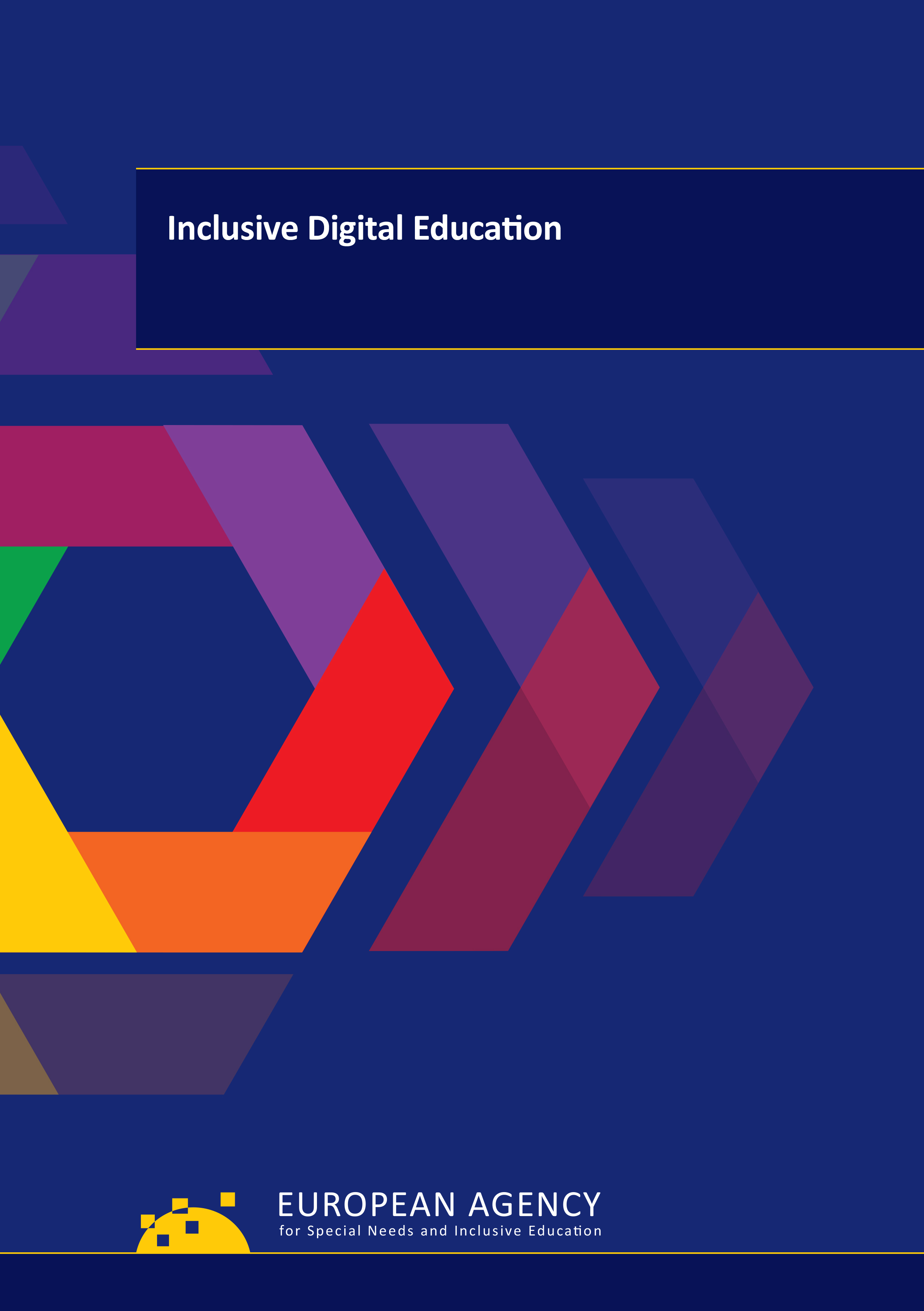The Inclusive Digital Education (IDE) desk research activity aims to thoroughly examine new priorities and demands in relation to inclusive digital education and blended learning. It considers international literature, along with Agency work in this field, and reflects on overlaps or gaps that need exploring.
Activity framework
The Agency has carried out extensive work in the field of inclusive digital education, e.g. ICT for Information Accessibility in Learning, ICT for Inclusion, Accessible Information Provision for Lifelong Learning, ICTs in Education for People with Disabilities, and so has a good overview of the subject area. Therefore, IDE has focused on more recent literature (2016–2021). The research also examined thematic conferences from the previous five years (2017–2021) and European co-operation projects (2007–2021) and included interviews with experts in the field.
The desk research began in 2021, with the outputs published during 2022.
The methodology underlying the research was based on the following four assumptions:
- Relevant trends and developments in the field of inclusive digital education are reflected in the academic literature, where they are systematically analysed in terms of their implications.
- Scientific research is time-consuming, and the subsequent process of publishing research results in the academic literature also takes varying lengths of time. Accordingly, the published results always ‘lag behind’ actual practice.
- The topics relevant in research and those relevant in practice are not necessarily identical. For example, a specific question that is a central theme in research (and could therefore be found frequently in literature searches) is not necessarily relevant in current educational practice, and vice versa.
- Trends and developments do not only emerge within certain thematic fields (such as education), but also arise through external effects or originate from other domains (e.g. from industry).
Please see the IDE methodology paper for more information.
Participants and target group
The Agency has carried out the IDE activity in collaboration with the Institut für Technologie und Arbeit (Germany). The outputs are aimed at policy-makers in the inclusive (and) digital education field.
Aims
IDE examines new priorities and demands in relation to inclusive digital education and blended learning. It aims to provide information and recommendations for policy-makers to consider the transformation of digital education and inclusive education as interrelated.
Activities and outputs
- The Inclusive Digital Education report analyses research, policy, practice trends and expert views, giving an overview of developments and highlighting issues in inclusive digital education that still need to be addressed.
- The methodology paper describes the methodology used to examine new priorities and demands in relation to inclusive digital education and blended learning.
- The project examples paper collates a selection of Erasmus+ projects dealing with specific issues related to inclusive digital education.
- An IDE policy brief that provides information and recommendations for policy-makers to consider the transformation of digital education and inclusive education as interrelated.
- A think piece on the interconnections between inclusive education and digital technology, which argues that the successful transformation of inclusive education systems must account for successful digital transformation.


